The contents of this article are human-created.
This post may contain affiliate links. Please see my full disclosure for details.
Discover the secrets of staying healthy naturally! Explore these 15 simple nutrition and lifestyle tips to boost your overall well-being and vitality.
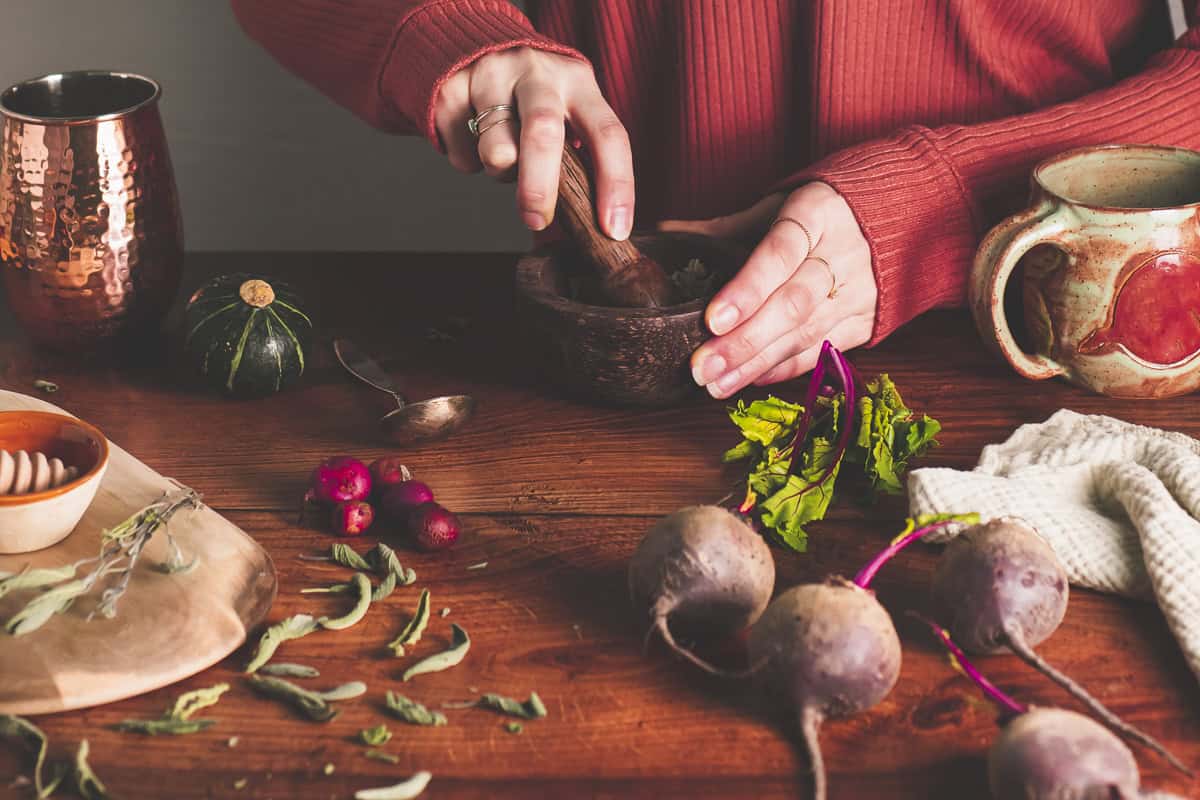
*Nutrition Disclaimer: The information provided on this site is designed for educational purposes only. You should not rely on this information as a substitute for, nor does it replace professional medical advice, diagnosis, or treatment. Please read my disclaimers page for more information.
Health is our greatest wealth. Without balanced physical, mental, and spiritual wellness, we lose our vigour for life, our Chi.
Our bodies are far more resilient than we give them credit for. They are constantly working to maintain health and balance. We simply have to provide the nourishment they need to function optimally. It's like maintaining and choosing the right fuel and oil for your car.
There are many natural and holistic approaches we can take to support the body's innate ability to heal and repair itself. It's all about finding what nourishes you.
15 Tips to Naturally Maintain Overall Health
Maintaining health is undoubtedly easier than reversing illness. Here are 15 tips to naturally maintain overall health through nutrition and lifestyle.
1. Embrace A Whole Food Diet
The food we eat is one of the most crucial aspects of our health. Embracing a balanced, whole-food diet is one of the best ways to ensure you're getting all the nutrients your body needs. From fibre and protein to vitamins and minerals, whole foods are nutrient-rich and more easily processed by the body. Plus, they are full of antioxidants and other natural compounds that help to combat disease, harmful bacteria and other pathogens.
Another reason to eat more whole food is that refined and heavily processed products weaken the immune system. In fact, highly sugared and refined foods can suppress the immune system for several hours after consumption. Of course, there's no harm in indulging once in a while. Generally, the 80/20 rule works well for most. This is eating whole foods and home-cooked meals 80% of the time and allowing yourself to indulge 20% of the time.
What Is A Whole Food Diet?
A whole-food diet consists mainly of unrefined and unprocessed foods. This includes fruits, vegetables, leafy greens, whole grains, lentils, legumes, grass-fed dairy and quality meats such as grass-fed and finished beef, wild-caught fish, pasture-raised poultry and game meats. Natural sweeteners, including raw honey, pure maple syrup and coconut sugar are also utilized instead of highly refined white sugar and corn syrup. Some even avoid oil on a whole-food diet. However, most stick to unrefined coconut oil, extra virgin olive oil and cold-pressed avocado oil. As well as utilizing grass fed butter, ghee and tallow.
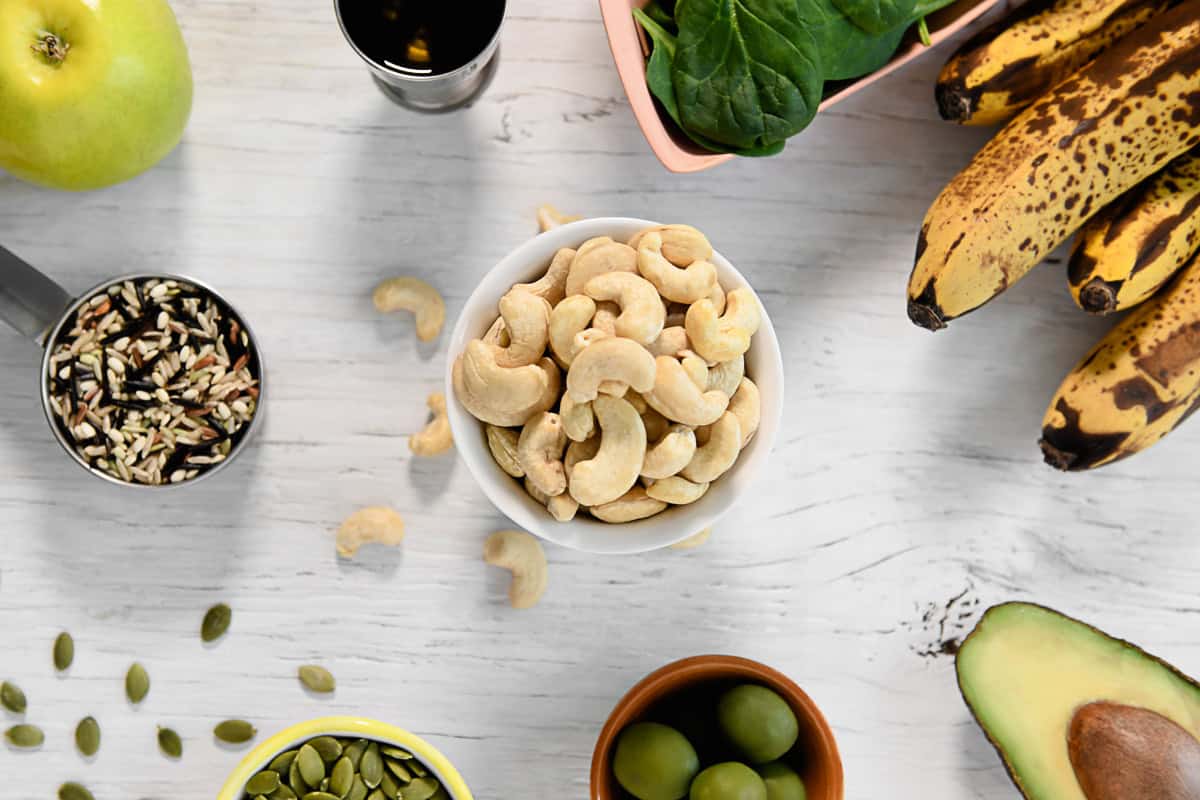
2. Choose Local and Organic
Choosing to buy local, organic produce and meats is a simple change that can have a powerful effect, not only on our own health but the health of our communities and local environments.
It's finally becoming more widely known that pesticides and herbicides (such as glyphosate) are linked to cancer, inflammation of the gut, infertility, and many other concerning health conditions. These compounds disrupt our hormones and contain "forever chemicals." This means they lodge into fatty tissues and build up over time. So, it can take many years before the first symptoms of disease even begin to show.
Choosing fruits and produce that are pesticide-free is a simple way to reduce our exposure to these toxins and harmful chemicals.
Buying local and growing your own is a great way to increase your nutrient uptake. Since the produce in large grocery stores often sits in a warehouse for months before it even hits the shelf, a huge percentage of the nutritional value is lost. The most nutritious fruits and veggies are the ones that are freshly picked!
3. Eat Your Greens... Reds, Blues, Purples and Yellows too!
We all know to eat our greens, but make sure to include other colours of the rainbow, too! (And to be clear, I'm talking about nature's rainbow here.) Just like each type of food offers a different nutritional profile, each type of plant pigment offers different antioxidant compounds. That's why orange foods are good for our eyes, while deep red foods are great for the heart.
It's also important to eat a variety of greens, such as spinach, lettuce, arugula, kale, and other collard greens. Even dandelion greens and beet tops are incredibly nutritious and are a great way to add a diverse range of vitamins and minerals to your diet.
Eating a variety of plants, grains, and legumes is also extremely beneficial to gut health! We need a variety of both soluble and insoluble fibre for healthy gut flora. The soluble fibre acts as a prebiotic, feeding our little microbes, while the insoluble fibre bulks up our stool, helping to eliminate toxins and clean the colon as it passes through.
4. Don't Skip the Protein
I don't know how many times I've heard people say, "Protein is overrated," and I have to admit, at one time, I even believed this too. However, I learned the hard way that protein is most definitely NOT overrated. Amino acids (what protein is made up of) are the building blocks of our muscles, tissues and organs. Yes, ladies, this means our precious skin too! Without protein, the body cannot repair itself, let alone build muscle or grow healthy skin, hair and nails. Certain amino acids are also precursors to hormones and neurotransmitters, such as serotonin. So, a lack of protein can not only affect our ability to heal but it can also affect our mental state and hormonal health.
Is Plant-Protein Enough?
The one great thing about protein is that as long we get enough essential amino acids, our bodies do the rest and string them together to make a complete protein. This means there are plenty of foods we get protein from. But, as a former plant-based babe, I can tell you that there's no protein that's more easily digestible and nutritionally sound than that of animal protein.
Many people, myself included, have put their health on the back burner to stay true to an "ethical" vegan diet. When in reality, I was essentially starving myself. My body wasn't absorbing all of the amino acids I needed from legumes, grains and vegetables alone. After including quality pasture-raised animal protein into my diet, my energy increased, my brain fog cleared, my mood and mental state improved, I was able to maintain muscle mass and a healthy weight, my digestion and gut health improved, my hormones became more balanced, and my skin began looking more clear and vibrant. Now, this isn't to say everyone needs to stop being vegan. But if your health is suffering, it might be worth taking an honest assessment of your protein intake.
What About Too Much Protein?
On the flip side, there is such a thing as too much protein! Eating an excessive amount of protein puts strain on the kidneys and can eventually lead to damage. So, as with anything, moderation is key. The rule of thumb is to consume around 0.8 grams of protein per kilogram of body weight each day.
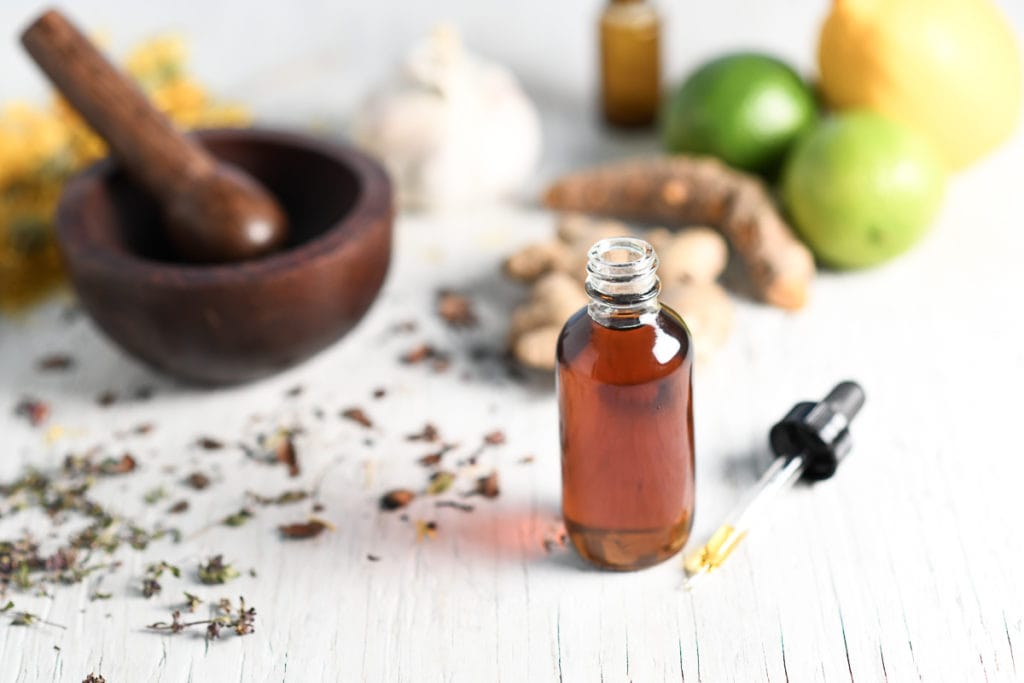
5. Utilize the Power of Fresh Herbs
Herbs are a wonderful and delicious way to support immune health, uplift your mood and add extra vitamins and minerals to your meals. Making infused vinegar and tinctures is also a great way to capture the potency of fresh herbs.
From ginger and turmeric root to rosemary and cilantro, each herb has a unique nutritional profile with its own set of health benefits. They have long been used to treat everything from upset stomachs to warding off the plague. However, simply adding a variety of fresh herbs to your diet can help to improve overall wellbeing.
6. Avoid Seed Oils
Seed oils such as canola, sunflower, safflower, grapeseed, and even "vegetable" oil are favourited by big brands and corporations because they're fast-growing and can be easily and affordably mass-produced.
Unfortunately, seed oils are highly volatile, making them extremely sensitive to heat and light. This is because they are made up of polyunsaturated fats (which have been touted as healthier than saturated fats). However, this is not the case when they are extracted from their whole food form.
Polyunsaturated fats are made up of long strands, which means they easily get bent out of shape and become harmful instead of healthy. Saturated fats, on the other hand, are just one or two chains long. So, they are much more stable when exposed to heat and light.
Long story short, the mere process of extracting seed oils causes them to become unstable, highly inflammatory and even carcinogenic.
What Oils Are Best?
The best oils and fats to use for cooking are grass-fed and finished butter, ghee or tallow, extra virgin olive oil, unrefined coconut oil and pure cold-pressed avocado oil.
It's also important to buy olive oil and avocado oil from reputable, family-owned farms since many large companies are cutting these oils with vegetable and seed oils. If the label says, "may contain soy, nuts, milk, etc.," it's a good indication that the company isn't selling pure oils. Another indication can also be if the label says "imported by: company name" instead of the actual address of the farm where the olives or avocados are grown.
7. Stay Hydrated (Learn to Love Water)
Water consumption is often overlooked when it comes to many health issues. Without adequate hydration, the body can become sluggish. From constipation to brain fog, many issues can arise from a lack of water intake.
Water is also needed for optimal organ function. Especially when it comes to liver and kidney health, water intake is crucial. It is also necessary for overall detoxification since it flushes out harmful bacteria, viruses, toxins, excess cholesterol and hormones that could otherwise wreak havoc in our bodies.

What Kind of Water is Healthiest?
Unfortunately, sugary juices, soda pop, and coffee just don't cut it. The healthiest way to quench thirst is with pure spring water or remineralized filtered water. Carbon water filters, like the Berkey System, are great at filtering chemicals while leaving the minerals intact.
Herbal teas or fruit and vegetable-infused water can also be a hydrating option with added health benefits! A few of my favourites are peppermint tea, lemon ginger tea and cucumber lime water.
8. Make Sleep and Rest a Priority
Sleep, rest, and relaxation play a more crucial role in overall well-being than many like to believe. From repairing damage to fighting inflammation, our bodies are hard at work when we are at rest. Without adequate sleep, more than just our productivity suffers. It can throw our whole being off balance. Consistent lack of sleep can cause a cascade of health problems, including sluggish organs and digestion, increased inflammation, brain fog, impaired motor function and a weakened immune system.
9. Stay Active
From heart health to mental well-being, physical exercise has so many positive benefits. In fact, a sedentary lifestyle puts us at the same risk for heart disease as smoking does!
Stretching and exercise can also be a great natural way to prevent and reduce joint and back pain (when done safely, correctly and in moderation). However, I think the most important thing to note in today's world is that exercise is the most effective natural antidepressant and antianxiety remedy. Physical activity releases endorphins and serotonin, which naturally boost mood and relieve pain.
The positive effects of physical activity can also boost self-esteem and inner confidence. This can, in turn, bolster the courage to cultivate healthier habits in other areas of life, such as nurturing healthy relationships, pursuing more challenging goals and better food choices.
10. Eat Live Cultured Foods
When it comes to immunity, gut health is so important. About 80% of our immune systems are made up of our microbiota (the bacteria that live on the inside and outside of our bodies). Eating a variety of fermented and live cultured foods, including yogurt, sourdough, apple cider vinegar, homemade pickles, and lacto-fermented vegetables such as sauerkraut, is one of the best ways to ensure a healthy microbiome. These foods provide a far more diverse range of beneficial bacteria than any probiotic you can buy.

11. Make Time for Play and Stress-Reducing Activities
Constant stress is another surefire way to weaken the immune system, increase inflammation and hinder digestion. That's why making time for play and stress-reducing activities is just as important to both physical and mental health as diet, sleep and exercise.
12. Nurture Healthy Relationships
An often overlooked aspect of well-being is the relationships we keep. Who we surround ourselves with can have a profound impact on our mental and physical states. We are creatures of community and connection, so we are more easily influenced than many like to admit. That's why it's so important to surround ourselves with people who inspire us to be our best. It's also incredibly important to have relationships in which we feel safe to be vulnerable and authentic. This creates an environment that promotes healthy communication, regulated nervous systems, a sense of self-efficacy and inner confidence.
13. Sunlight Over Screen light
With the amount of screen time most are subject to, exposing our skin and eyes to natural sunlight before logging onto our screens can have a profound impact on our hormonal health and sleep patterns. On the same token, reducing our screen time at night or wearing blue light-blocking glasses can also aid in better sleep and a more regulated nervous system.
Vitamin D3 is also crucial for immune function and mental health. The best and most reliable way to get a daily dose of D3 is to spend at least 15 minutes outdoors. However, that is not advisable in extreme temperatures or for certain skin conditions. So, opening curtains and sitting near windows that let lots of natural light in can also be a great way to get natural vitamin D exposure.

14. Cultivate a Spiritual Connection or Practice of Faith
Studies have long shown that those with a healthy spiritual connection or practice of faith are generally happier, have longer-lasting relationships and are less prone to mental illness. This stems from having structure, community and firm morals and values. It provides a feeling of security and groundedness, which is crucial for nervous system regulation. And just to drive it home, the more time we spend in a regulated state, the better our bodies can keep us healthy and vibrant.
15. All Things in Moderation
It's true that too much of a good thing can become a bad thing, just as it's difficult to resist temptation 100% of the time. Too much restriction and rigidity can cause high stress, nervous system dysregulation and the chronic diseases that come along with that. On the flip side, too much indulgence, even in healthy things, can lead us straight to our own demise. That's why the key to life isn't one holy grail but all things in moderation. There's a yin to every yang and yang to every yin. Just as nature intended, a healthy life is a balanced life.


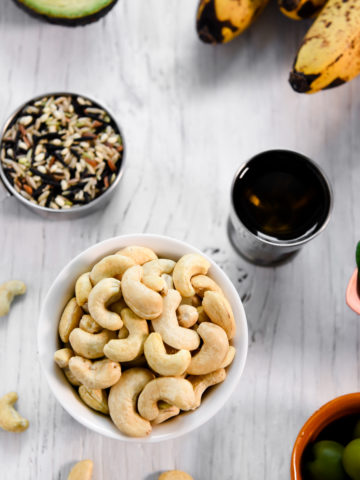
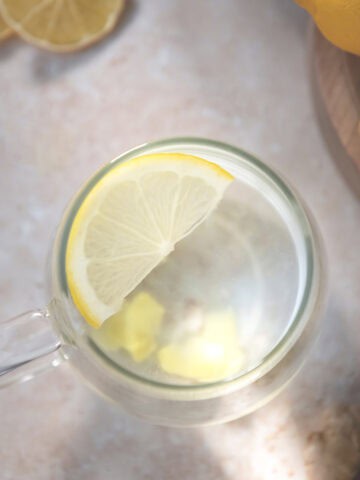
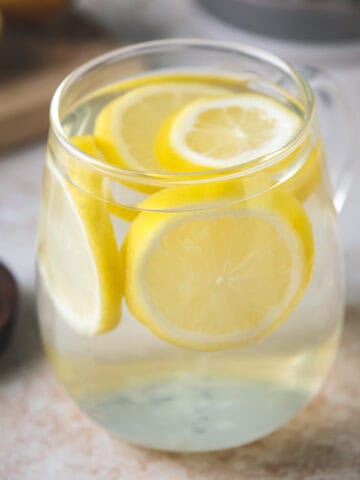
Rate this Recipe & Share How it Turned Out!